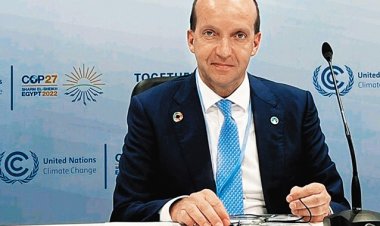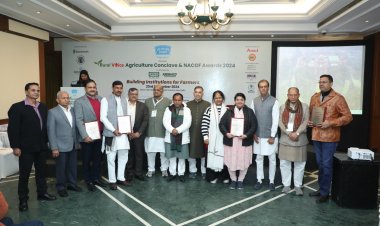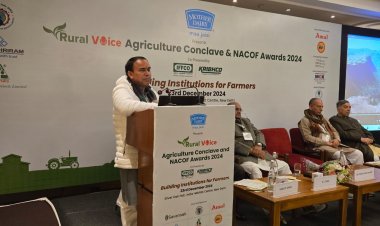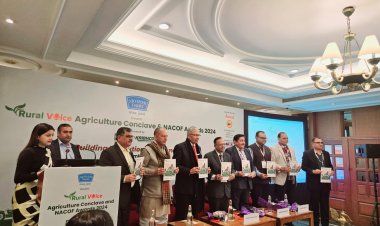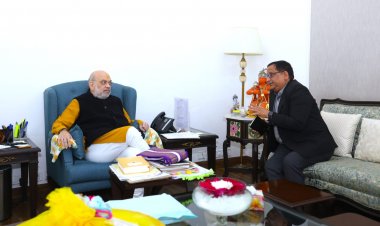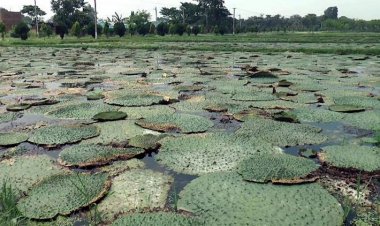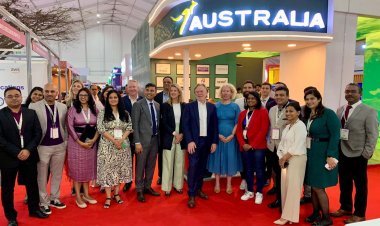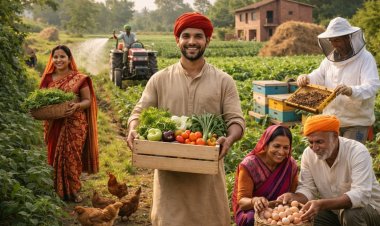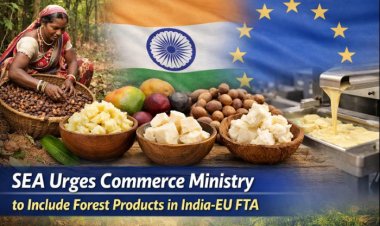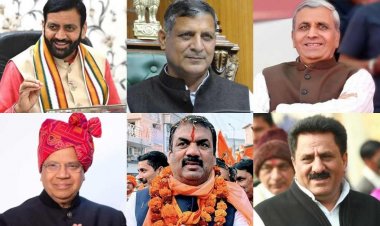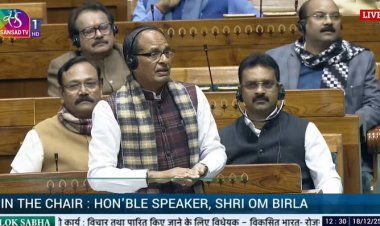Rural Voice Agriculture Conclave Highlights Institution Building for Farmers, awards presented
Experts from the agriculture sector, policymakers, industry and farmers representatives emphasized creating and empowering institutions to advance agriculture and support farmers in the country.
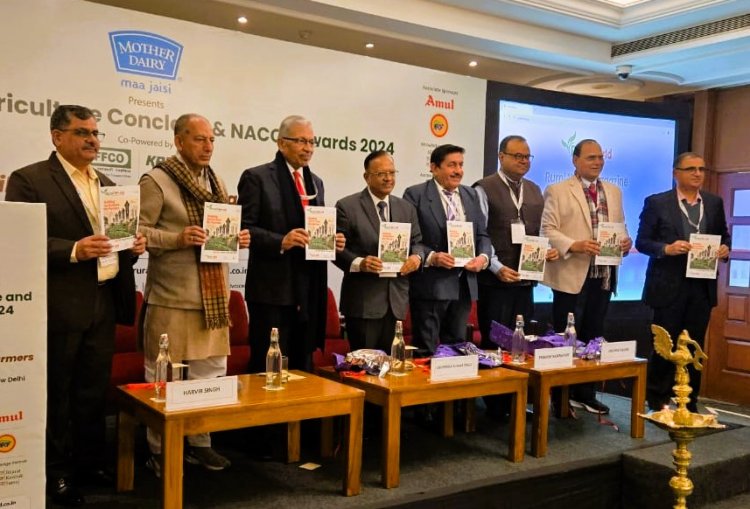
On the occasion of the fourth anniversary of Rural Voice and Kisan Diwas, “Rural Voice Agriculture Conclave and NACOF Award 2024” was organized at India Habitat Center, New Delhi on 23 December, whose theme was 'Institution Building for Farmers'. Experts from the agriculture sector, policymakers, industry and farmers representatives emphasized creating and empowering institutions to advance agriculture and support farmers in the country. Additionally, farmers, cooperative institutions, social organizations, and public institutions excelling in the agriculture field were awarded.
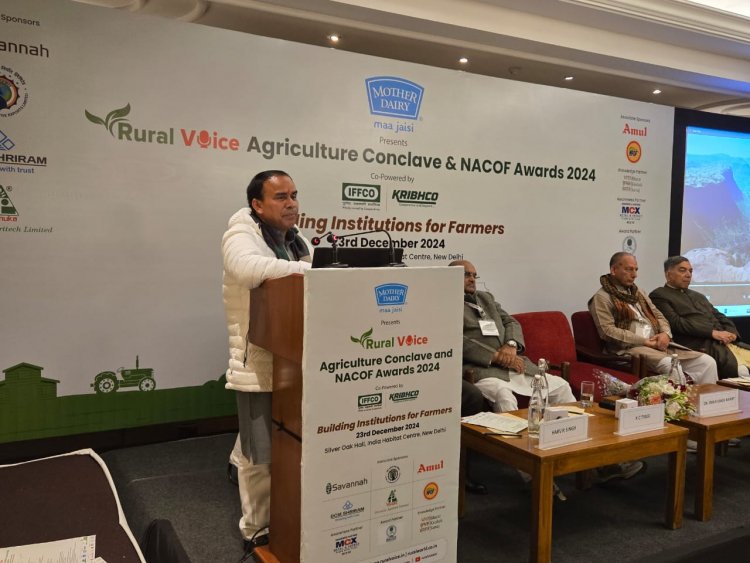
Dr. Dhan Singh Rawat, Uttarakhand's Minister for Education, Health, and Cooperatives, presented the awards. In his address, Dr. Rawat highlighted several cooperative initiatives in Uttarakhand that have inspired adoption in other states. He noted that Uttarakhand aims to become fully organic within the next two years, with 62 out of 95 blocks already achieving organic status. He also mentioned that 12 lakh farmers in the state received interest-free loans of up to ₹5 lakh, with no instances of NPAs. Dr. Rawat stressed that development hinges on farmers' active participation, especially given challenges like declining agricultural land, decreasing soil fertility, and a growing population.
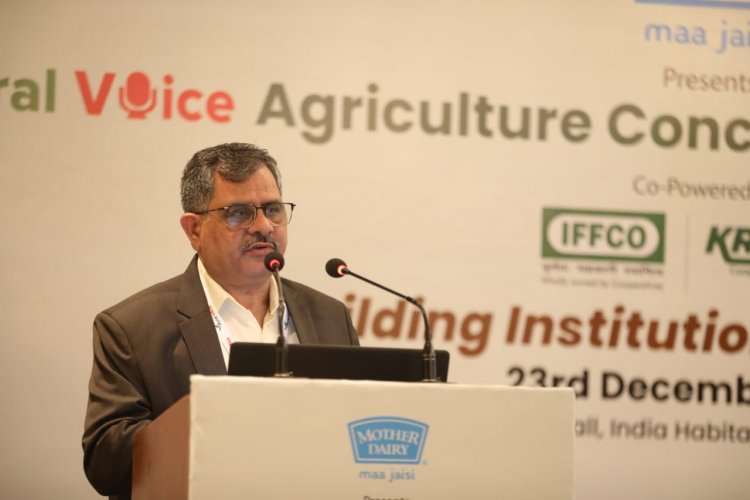
In his welcome address, Rural Voice Editor-in-Chief Harvir Singh reflected on the platform's four-year journey and the significance of institution building for farmers. He stressed the importance of developing institutions capable of addressing agricultural challenges and farmers' issues. On this occasion, the latest issue and digital version of Rural World magazine were also released.
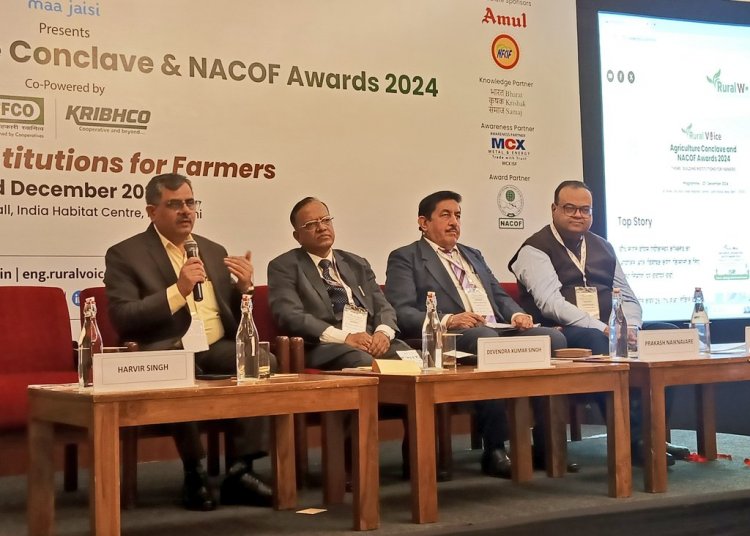
In the first session, themed Next-Gen Coops for Next-Gen Agriculture, Devendra Kumar Singh, Chairman of the Cooperative Election Authority, highlighted the growing trust in cooperatives following the establishment of the Ministry of Cooperatives. He stressed transparency and enhanced opportunities for women in cooperatives. NFCSF Managing Director Prakash Naiknavare discussed the role of cooperative institutions in welfare of sugarcane farmers and development of the sugar industry. National Cooperative Export Limited (NCEL) Managing Director Anupam Kaushik, while talking about new cooperative institutions, emphasized the need to repeat the success of Amul in other sectors related to agriculture.
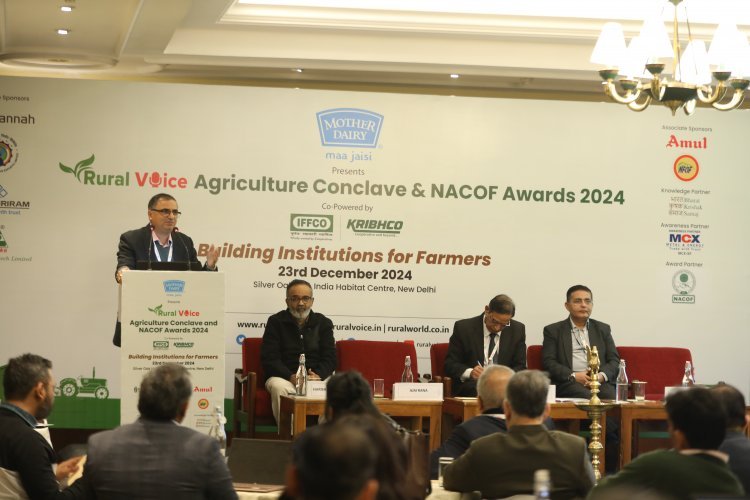
In the second session, "Private Sector: Farmers' Participation," Ajay Rana, CEO and MD of Savanna Seed Private Limited, underlined the private sector's role in providing improved seeds and boosting agricultural production. Rajiv Yadav, COO of Singapore-based MNC Agrocorp India Trade Services Private Limited, expressed his views on research, global linkages and the contribution of private sector in increasing productivity. Sanjay Gakhar, Vice President (Business Development) of Multi Commodity Exchange of India Limited (MACX), said, the most important thing for farmers is when and at what price to sell the produce. Dr. PK Chakraborty, Chief Scientific Advisor of Dhanuka Agritech, said that the government and the private sector need to work together. Harish Damodaran, Editor, Rural Affairs, Indian Express, moderated this session.
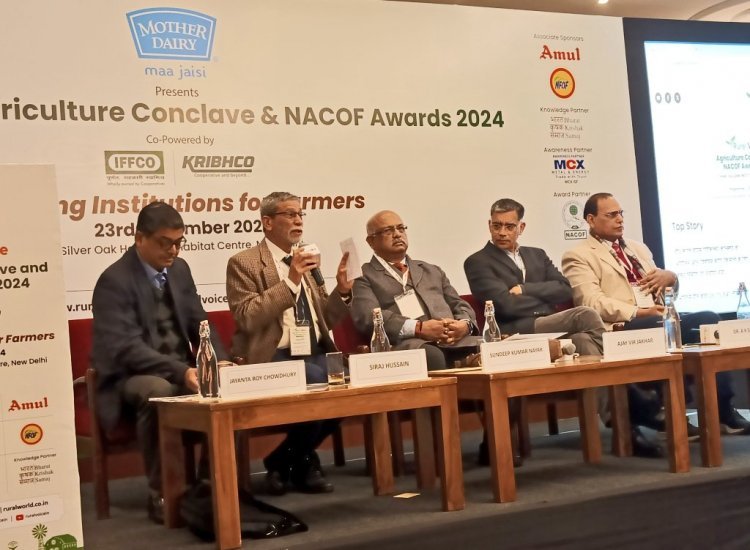
The third session focused on Public Institutions for Farmers. Former Agriculture Secretary Siraj Hussain highlighted the lack of focus on agricultural infrastructure in the budget despite a significant allocation for infrastructure development. He also highlighted the need for increased R&D investment. Dr. A.K. Singh, former Director of IARI, detailed public institutions' contributions post-Green Revolution, particularly ICAR and IARI, and their pivotal role in creating high-yield Basmati varieties. The Basmati rice varieties developed by IARI are exported annually for about Rs 50 thousand crore. However, he said that farmers did not get a better price for Basmati paddy this year. Ajay Vir Jakhar, Chairman of Bharat Krishak Samaj, stressed on the accountability of the institutions formed for farmers. He also suggested that every scheme and institution should be assessed by its beneficiary. Jakhar said that farmers should raise issues related to the institutions around them. Former PTI executive editor Jayanta Roy Chowdhury conducted the session.
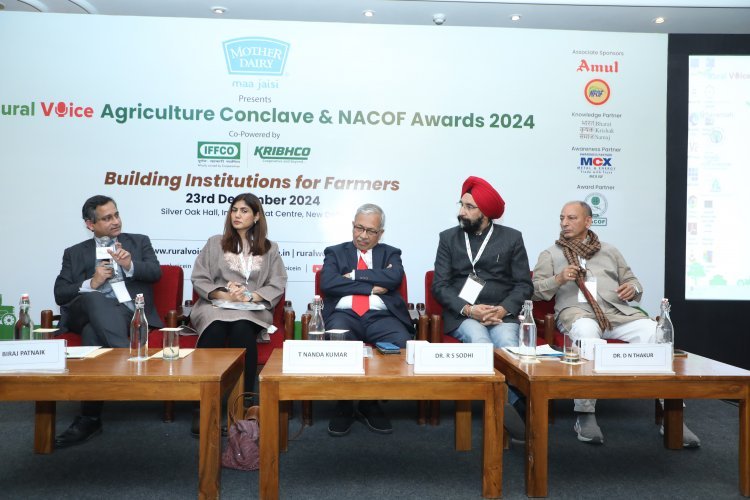
The fourth session, "Enabling Policy Environment for the Growth of Institutions for Farmers," included insights from Dr. D.N. Thakur, Chief Patron of Sahakar Bharati. Dr Thakur stressed pragmatic policy formulation. Dr. RS Sodhi, President of the Indian Dairy Association, advocated for transforming cooperatives into commercially viable institutions. He also dismissed the negative perception of rising agricultural produce prices as food inflation. Former Agriculture Secretary T. Nandkumar urged farmers to embrace ownership like a shareholder. He also shared his concerns about struggling FPOs. Dr. Munesh, Assistant Professor at Delhi University, proposed four strategies for farmers' prosperity: profitable farming, care for the environment, women's participation, and synergy between education and agriculture. While conducting this session, Executive Director of National Foundation for India (NFI), Biraj Patnaik expressed concern over the anti-farmer environment being created.
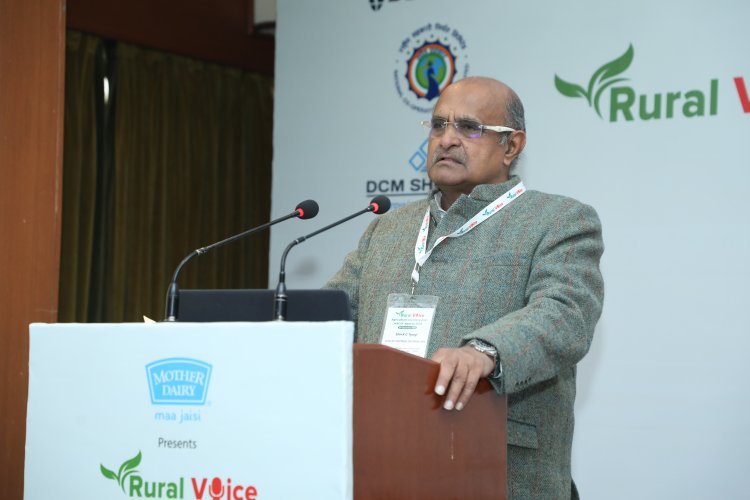
Former MP KC Tyagi lauded farmers' efforts in making India self-reliant and supported their demand for an MSP guarantee. He also paid tribute to Bharat Ratna recipient Chaudhary Charan Singh for his contributions to farmers' welfare.
On this occasion, Awards were presented to:
- Umesh Kumar (Progressive Farmer category) from Shamli, Uttar Pradesh.
- Uttarakhand Cooperative Silk Federation Limited (Cooperative category).
- NCDC (Public Sector Institution category).
- Sulabh International School of Action Sociology and Sociology of Sanitation (Social Sector Institution category).
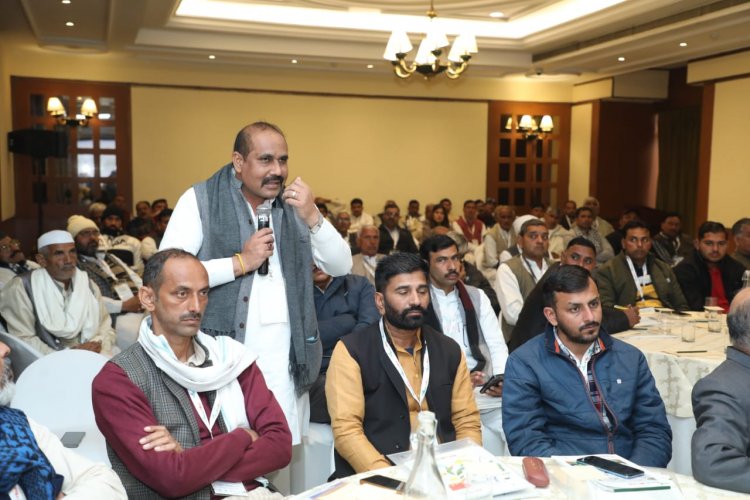



 Join the RuralVoice whatsapp group
Join the RuralVoice whatsapp group

















